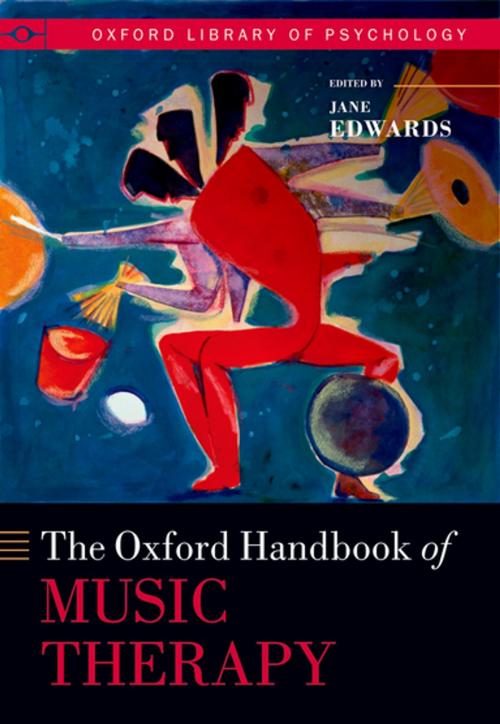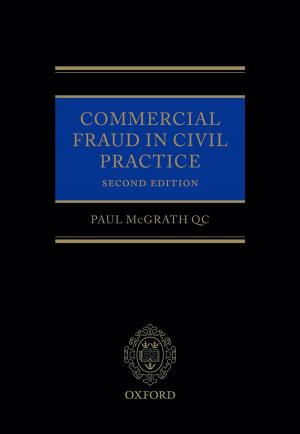The Oxford Handbook of Music Therapy
Nonfiction, Health & Well Being, Psychology, Cognitive Psychology, Medical| Author: | ISBN: | 9780191035999 | |
| Publisher: | OUP Oxford | Publication: | June 2, 2016 |
| Imprint: | OUP Oxford | Language: | English |
| Author: | |
| ISBN: | 9780191035999 |
| Publisher: | OUP Oxford |
| Publication: | June 2, 2016 |
| Imprint: | OUP Oxford |
| Language: | English |
Music therapy is growing internationally to be one of the leading evidence-based psychosocial allied health professions, meeting needs right across the lifespan. Music therapy is a relational therapy in which the therapist and client collaborate to discover how music can be used to strengthen positive relating skills, attending to the client's immediate and longer term needs through assessment, treatment planning, implementation, and evaluation of a music therapy programme. Music therapy is based upon the capacity of music provided by a trained and qualified practitioner to support, integrate, and heal trauma, pain, psychological distress, and to develop and extend the existing capacities of the client. In the Oxford Handbook of Music Therapy, international leaders in the field from 10 countries have contributed their expertise to showcase contemporary music therapy. They share knowledgable perspectives from multiple models of music therapy that have developed throughout the world, including Nordoff-Robbins Music Therapy, The Field of Play, Community Music Therapy, and Resource Oriented Music Therapy. There is extensive information provided as to how music therapists practice and with whom, as well as the techniques used in music therapy individually and in groups, the research basis for the work, and professional and training issues in the field. The book is clearly laid out in five sections; contexts and populations, models and approaches, methods and techniques, research methods, and training and professional issues. Course materials can be structured around the book, or the book can be used as a starting point for students' learning about a model or population. Music therapy students will enjoy the clear descriptions of practice, the clinical vignettes, and the helpful pointers and tips for developing placement work. Unequalled in depth and breadth, this landmark publication is an essential resource for those starting out in Music Therapy, as well as for experienced practitioners.
Music therapy is growing internationally to be one of the leading evidence-based psychosocial allied health professions, meeting needs right across the lifespan. Music therapy is a relational therapy in which the therapist and client collaborate to discover how music can be used to strengthen positive relating skills, attending to the client's immediate and longer term needs through assessment, treatment planning, implementation, and evaluation of a music therapy programme. Music therapy is based upon the capacity of music provided by a trained and qualified practitioner to support, integrate, and heal trauma, pain, psychological distress, and to develop and extend the existing capacities of the client. In the Oxford Handbook of Music Therapy, international leaders in the field from 10 countries have contributed their expertise to showcase contemporary music therapy. They share knowledgable perspectives from multiple models of music therapy that have developed throughout the world, including Nordoff-Robbins Music Therapy, The Field of Play, Community Music Therapy, and Resource Oriented Music Therapy. There is extensive information provided as to how music therapists practice and with whom, as well as the techniques used in music therapy individually and in groups, the research basis for the work, and professional and training issues in the field. The book is clearly laid out in five sections; contexts and populations, models and approaches, methods and techniques, research methods, and training and professional issues. Course materials can be structured around the book, or the book can be used as a starting point for students' learning about a model or population. Music therapy students will enjoy the clear descriptions of practice, the clinical vignettes, and the helpful pointers and tips for developing placement work. Unequalled in depth and breadth, this landmark publication is an essential resource for those starting out in Music Therapy, as well as for experienced practitioners.















